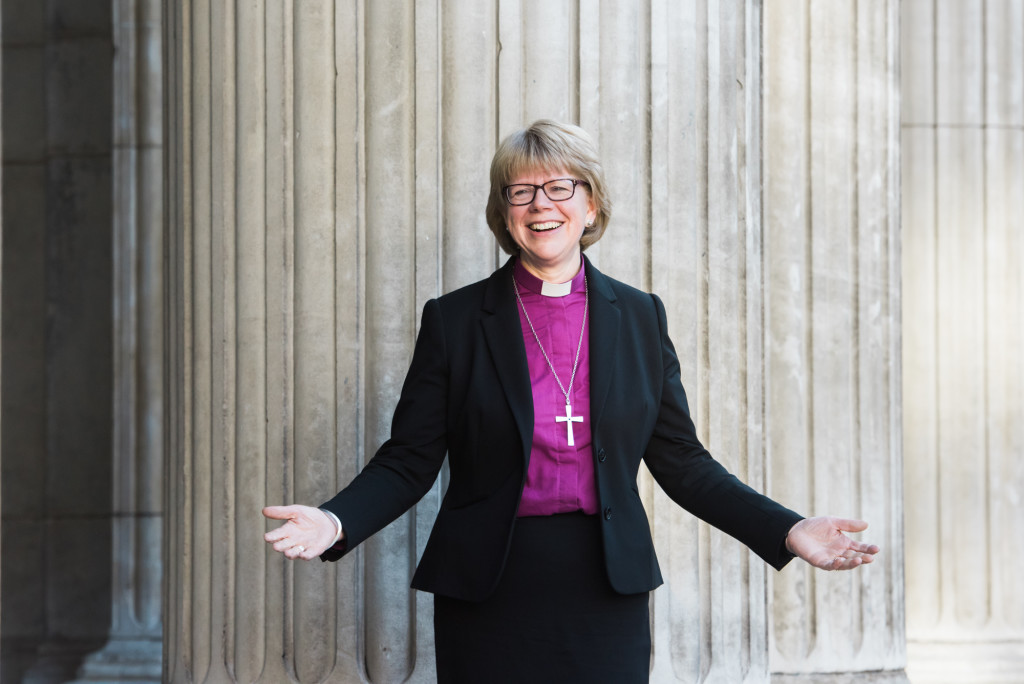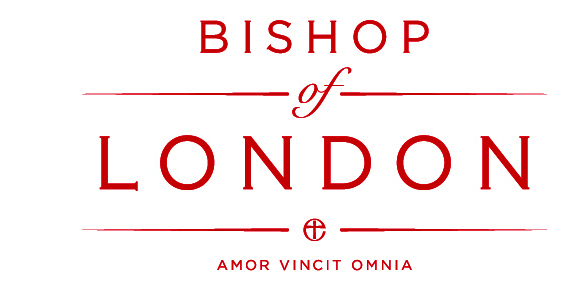
Christmas Day Sermon preached by the Bishop of London
Location: St Paul’s Cathedral
Date: 25/12/2020
‘Christmas is a very different event this year and it seems that even the TV advert producers know this – friends, family and kindness fill our tv screens they sense that material things will only go so far.
This is usually a time of comfort, and we have all been taking heart from those traditions which seem to have arrived even earlier in 2020, to offset how we have been feeling. Christmas trees going up, festive food, seasonal music on the radio, favourite television programmes – all reassuring, welcome comforts that nonetheless may seem a little hollower this year.
I wonder what it is that brings you comfort? For me it is sitting in my favourite chair, cup of tea in hand watching Agatha Christie on the TV and reading my favourite book – yes I can multi task!
It feels that it may take more than home comforts as we find ourselves in the middle of a crisis which has taken our breath away, which has taken away our ability to see and hug those we love, which has taken away our freedom to sing, and which has taken away lives, health, jobs, and financial security.
Traditionally into Christmas comes the words of Handel’s Messiah from Isaiah 40
“Comfort ye, comfort ye my people, saith your God. Speak ye comfortably to Jerusalem, and cry unto her, that her warfare is accomplished, that her iniquity is pardoned. The voice of him that crieth in the wilderness, Prepare ye the way of the Lord, make straight in the desert a highway for our God.”
From about six hundred years before Jesus was born, the poet we have come to know as Deutero-Isaiah was called by God. The people had been suffering in exile for years under a foreign power, but Deutero-Isaiah’s call is not full of God’s warnings and threats, but of comfort and hope written out in wonderful poetry.
Into the midst of Israel’s suffering the prophet calls and into the midst of this pandemic the prophet calls – Comfort, O comfort my people, says your God.
Scripture is confident about the possibility of real and lasting comfort in Jesus Christ whilst being realistic about the sorrows of life. The Christ child was born into a world at war, a country under occupation and into poverty.
Our reading from John’s gospel tells us that the light shines in the darkness, and the darkness did not overcome it. It does not deny the darkness but we are to know that the light of Christ shines in it – hope and comfort in a broken world.
Giles Fraser (former Canon of this cathedral) recently wrote that the story of the emergence of hope in a world of brokenness is why Christmas is not just a tall tale of angels and shepherds. It’s a depth charge of hope dropped right into the middle of human darkness.
This year will have been difficult for us in so many ways. As Christians, we know that, into a world full of suffering, God chose to come and live among us in the form of a newborn child – that is the source of our comfort. It is that which will sustains us. Now hope is not about optimism or about short lived happiness, it is about a deeper inner peace which endures in the dark places of our lives. The Christmas Story does not deny the difficult times, but God offers us comfort and hope right at the heart of them. As Archbishop Desmond Tutu, in an Advent message to the Church in the Province of South Africa, said, “It was precisely in the darkness, where it looks like there was no way forward, that the light which lightens everyone came into the world.”
That is the reason for comfort and hope. Hope is made of the infinite love of God, hope breathed life into creation and said it was good, hope shimmered in the courage of Mary, hope is glimpsed in the excitement of Elizabeth and hope finds its voice in the song of the angels and is found in Jesus Christ – Emmanuel God with us. Hope doesn’t skip over grief and pain but enters into it and tenderly tells us He is with us.
The power of the incarnation is God’s empathic movement into the suffering of the world in order to share in our suffering creating possibilities even with in the most hopeless of situations. Jesus our hope inhabits our suffering in hopeful ways as an act of resistance against all of the forces of despair.
I have seen what hope looks like in the last nine months. In the first lockdown, hope looked like St Dionis in Parsons Green, where volunteers were based, busily creating PPE packs for NHS workers. In the run up to Christmas, hope has looked like St Mary Hornsey Rise, busily preparing hampers for local residents, or like St Cuthbert’s in North Wembley, where their Memory Café has been helping to relieve the loneliness suffered by older people, caused by poor memory and social separation. Hope is seen in the breaking of bread and the wine out poured as we celebrate God with us.
We are no strangers to the light of comfort and hope at Christmas but this year, that light shines even brighter, amidst the darkness we face.
O comfort o comfort my people says our God
A voice says, “Cry out!” And I said, “What shall I cry?”
“Here is your God!”
He tends his flock like a shepherd:
He gathers the lambs in his arms
and carries them close to his heart;” Isaiah 40:11
May you know the comfort of the arms of the good shepherd around you and may the hope of the Christ Child sustain you this year. Amen.’
